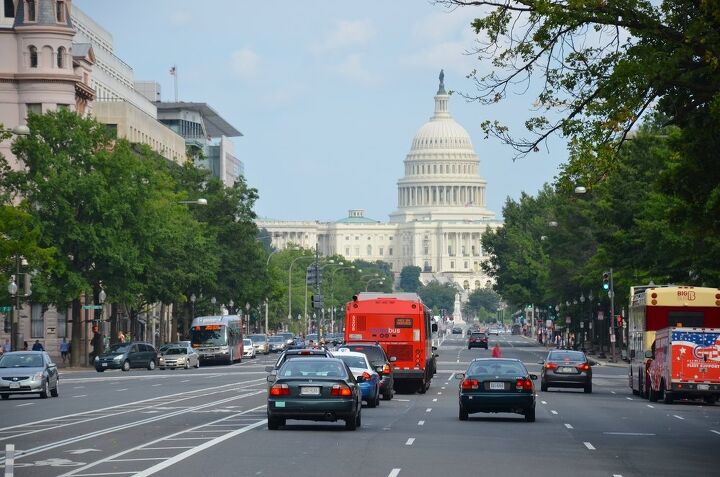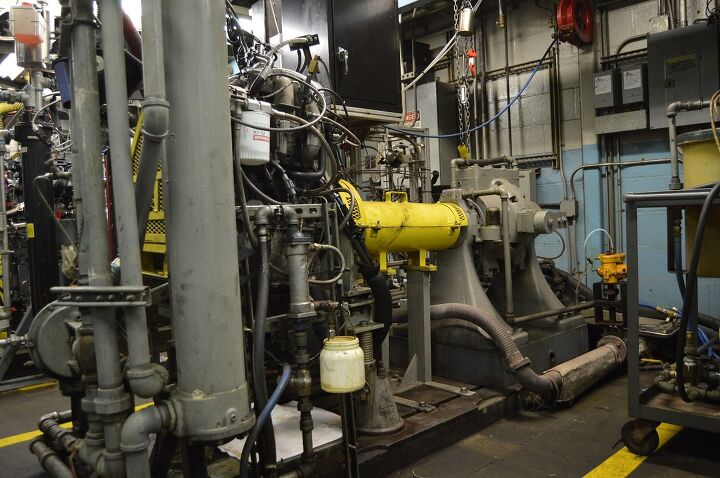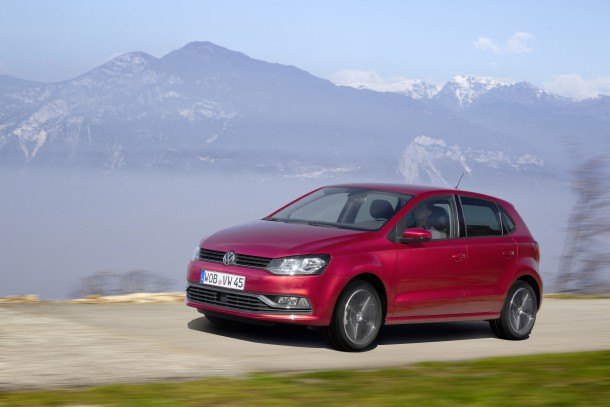#Gas
Oregon Ends Ban on Self-Serve Gasoline
Oregon and New Jersey are the only two states that require motorists to have an attendant pump gas for them. Well, they were the only two -- now New Jersey is the only one.
Gas War Watch: EPA and CARB Leadership Won't Even Share the Same Table
Capitol Hill was the scene of some high-school drama this week after representatives from the Environmental Protection Agency (EPA) and the California Air Resources Board (CARB) reportedly refused to sit at the same table while discussing fueling regulations with the U.S. House Energy and Commerce Committee.
As petty as this seems, it illustrates the overall situation rather well. White House officials terminated talks with California in February, citing an inability to progress the debate. Meanwhile, CARB has been claiming the Trump administration doesn’t want to hear its case and has instead sought to strip the state of its ability to self regulate in order to pass reforms that would freeze national emissions standards at 2020 levels though 2026.
Thursday’s congressional bickering helped paint a clearer picture of what the communications breakdown looked like.
Gas War Watch: UAW Goes to Congress, Sides With Automakers on Fuel Economy Rollback
The United Auto Workers is spending Thursday telling Congress that the union opposes the Trump administration’s proposal to freeze fuel efficiency requirements at 2020 levels through 2026… sort of. While the UAW expressed moderate environmental concerns in the past, most of its opposition to the rollback has revolved around corporate investments into the industry. In fact, the union’s research arm called fuel economy the auto industry’s “future” in 2018.
This time around, the UAW seems to be singularly focused on business aspects. According to a prewritten testimony, UAW Legislative Director Josh Nassar intends to tell two subcommittees of the U.S. House Energy and Commerce Committee that the union is in line with automakers’ concerns about the proposal leading to “protracted litigation and uncertainty in the industry that will limit growth.”
The Great Gas War: House Committee Plans Hearing On Fuel Efficiency Rollback
On Tuesday, the House of Representatives Energy and Commerce Committee said it will schedule a hearing on June 20th regarding the Trump administration’s proposal to roll back automotive efficiency standards. The decision comes from Committee Chairman Frank Pallone, Jr. (D-NJ), Consumer Protection and Commerce Subcommittee Chair Jan Schakowsky (D-IL) and Environment and Climate Change Chairman Paul Tonko (D-NY) — all of whom are in clear opposition to the suggested plan.
The groups will hold a joint hearing to discuss Corporate Average Fuel Economy (CAFE) standards and carbon pollution regulations affecting light duty vehicles as they relate to the current administration’s plan to effectively freeze efficiency targets between 2020 to 2026.
Meet Us in the Middle: Automakers Plead for Peace, Compromise Between White House and California
The automotive industry is in turmoil. There’s an industrywide push toward electrification that has yet to prove itself as truly profitable, volume seems to be tapering off in the developed world, and emissions regulations aimed at improving air quality are operating counter to existing consumer tastes. As a result, automakers are scrambling to find the best path forward.
In 2017, that path involved encouraging the new U.S. president to roll back Obama-era fuel economy mandates, thus providing some breathing room and staving off fines as automakers began to realize they wouldn’t be able to meet tightening targets. The administration listened, leading to a proposal that would effectively freeze mileage standards at about 37 miles per gallon — rather than the previously decided 54.5 mpg — by 2025.
However, California and a coalition of supportive states claim they won’t be going along for the ride. This group says it will maintain the old standards, regardless of what the White House says. The staredown has automakers worried; they’ve now banded together to issue a letter asking both sides to calm down and keep talking.
White House to Automakers: Choose a Side in the Great Gas War
The Trump administration has long been at odds with California and a coalition of supportive states that hope to block the rollback of Obama-era fueling regulations the current Environmental Protection Agency deems “unsustainable.” The EPA also says it’s inconsistent with consumer behavior. But automakers have behaved somewhat erratically on the matter, forcing the president to request (by proxy) that they make up their minds and pick a side before a final decision is made.
While industry leaders previously backed the more stringent regulatory framework set in place by the former president, they quickly converged on Washington after Trump assumed office in 2017, requesting a softening of Corporate Average Fuel Economy standards. After blowback from California and environmental activists, automakers took a more measured approach, publicly stating that they support green initiatives and reducing their own carbon footprint — and suggesting that a national deal be reached that pleases all parties.
Fence-sitting time might be over.
Premium is the New Regular: Automakers Want to Kill 87 Octane
The automotive industry wants to make 95 octane gasoline the new normal for the United States and it has taken its case to Washington. On Friday, Dan Nicholson, General Motors’ vice president of global propulsion systems, told the House Energy and Commerce Committee’s environment subcommittee that switching to 95 octane would align the U.S. with Europe and is one of the most affordable ways to boost fuel economy and lower greenhouse emissions.
Affordable for automakers, that is. Because there is no reason to think your local gas station will suddenly do you a solid and price 95 octane lower just because 87 is gone.
Here's Why Japanese Automakers Keep Sending Hydrogen-powered Cars to North America
The United States and Canada don’t have much of a hydrogen fueling infrastructure to speak of, but Japanese automakers continue sending fuel cell vehicles across the ocean anyway. Vehicles like the Honda Clarity and Toyota Mirai have been touted as the environmental saviors of tomorrow but, with the exception of California, there really isn’t a place for them in the North America of today. So why do Japanese manufactures continue to bother with hydrogen?
The main reason is because Japan has bought into a future that America doesn’t seem interested in. With three of its automakers already producing fuel cell cars, the government as adopted a fairly aggressive plan to adopt hydrogen for homes, business, and cars by 2030 — meaning the U.S. probably won’t see these vehicles vanish anytime soon.
I Can Feel It: Drivers Spent $2.1 Billion on Unnecessary Octane Last Year, Says AAA
Like something from the Nixon era, the U.S. Southeast is currently in the grips of a gasoline shortage, all thanks to the shutdown of the Houston-to-New York Colonial Pipeline. North Carolina and Virginia have declared a state of emergency as gas pumps dry up.
Even TTAC’s Bozi Tatarevic can’t find premium unleaded to save his life. His WRX’s tank runneth dry.
The sudden gas crisis provides a perfect backdrop for a study by the American Automobile Association showing that 16.5 million Americans gassed up their vehicle last year with octane they didn’t need.
AAA Study Finds Drastic Differences In Gasoline Quality
AAA hired an independent lab to complete 4,000 miles of simulated driving to compare Top Tier gasoline with the cheaper blends. Their findings show that the additive packages in Top Tier gas resulted in fewer carbon deposits than those found in the non-Top Tier gasoline test.
The study also found that there were some secondary benefits to the better additive packages, including slightly better fuel economy and better drivability. The benefits are apparent, but do consumers really care?
Germany's Transportation Chief Wants To Retest Every Volkswagen Now
German authorities said Wednesday that they would retest all Volkswagen cars — regardless of engine type or brand — for emissions compliance, Reuters reported.
German transportation minister Alexander Dobrindt expressed his “irritation” with the automaker that more cars were being added to the deepening scandal. On Monday, the Environmental Protection Agency notified the automaker that some of its 3-liter diesel models may contain an illegal “defeat device” to fool emissions tests.
Auto Alliance Kills Aggressive California Gas Bill
California’s ambitious climate change bill was stripped Wednesday night of its toughest provision that would have cut the state’s gasoline consumption 50 percent by 2030, Automotive News is reporting.
A pared down version of California’s wide-rangning transportation bill will reach Gov. Jerry Brown’s desk, but won’t include the gas target nor a plan to fix California’s roads.
The controversial bill was met last month by an automotive lobby that flooded the state with advertisements and money to combat the provisions.
“Oil has won the skirmish. But they’ve lost the bigger battle,” Brown said, according to the LA Times. “Because I am more determined than ever.”
Hyundai Reveals Sixth-Generation Elantra in South Korea With Atkinson, Diesel Engines
Hyundai’s compact model, the Elantra, will arrive with the brand’s newly adopted trapezoidal grille, new engines and a number of enhancements to improve perceived quality.
The automaker, who looked at the Dodge Dart and said, “Yeah, that looks good but needs more grille,” revealed the sixth-generation Elantra on Wednesday in South Korea.
Who's Ready to Party Like It's 2008?
Break out the champagne and 7-liter engines. Have one on us, alright?
The Wall Street Journal and Reuters are reporting that despite a mild increase in crude, oil is hovering around $40 a barrel and it’s expected to further dip in coming months to a six-year low on a global glut of oil.
The national average for a gallon of gas could drop to as low as $2, Green Car Reports says, which would be the cheapest its been since January, and could approach historical lows from 2008.
Piston Slap: What Makes Premium Fuel More Expensive?
TTAC Commentator sastexan writes:
Sajeev,
I’ve been driving cars requiring premium fuel (91+ octane). When I bought my Contour SVT in 1998, high test was $0.20 more a gallon (just under a 20% premium over regular). But it was regularly always only $0.20 more. In the past decade or so, I noticed the delta going to $0.30 and even more. The correlation did not seem to be to the price (eg, premium did not seem to track a consistent 15% increase). Rather, the difference appears to be a flat rate.
Question for the best and brightest – what in higher octane fuel makes it more expensive?
What inputs are there and how much more does it cost to manufacture?




























Recent Comments